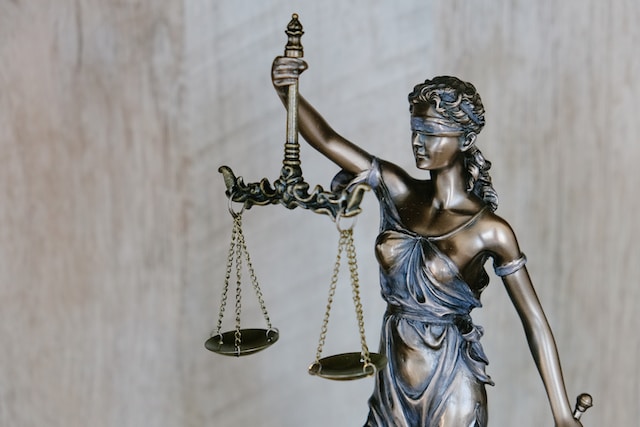
Only a few elements carry as much weight in the courtroom as eyewitness testimonies—And this is especially true in criminal defense law. Jurors tend to place significant trust in the accounts provided by those who claim to have seen a crime unfold.
That being said, the reliability of eyewitness testimonies is a double-edged sword sometimes. Indeed, eyewitness testimonies can be compelling and irrefutable evidence, particularly in simpler crimes, nobody is actively looking for crimes to happen, making inaccuracies, biases, misinterpretations, and misperceptions quite common.
Most competent lawyers in northwest Indiana will tell you that challenging eyewitness testimonies are an art and a crucial skill. It often involves meticulous examination, strategic questioning, and an understanding of the cognitive factors that can influence what a witness believes they saw.
Today, we’re going to delve into the strategies employed by criminal defense attorneys to scrutinize and contest eyewitness accounts. From establishing reasonable doubt to unearthing inconsistencies, this article unveils the tools of the trade used to defend the accused against potentially unreliable eyewitness testimonies.
The Fallibility of Human Memory
It’s not rare for a criminal defense attorney northwest Indiana to find enough grounds to overturn a ruling or change the perception toward the accused by simply bringing into light the fallibility of memory.
Human memory, while remarkable in its capacity to store and retrieve information, is far from infallible. In criminal cases relying on eyewitness testimonies, it’s essential to understand the limitations of memory.
Memory is not a video recording but a reconstruction influenced by various factors, including stress, anxiety, suggestion, and the passage of time. Research in psychology has revealed that eyewitnesses can be prone to memory errors, such as:
- Misattribution: Witnessing an event may lead to incorrect associations or attributions, where details from one situation are mistakenly linked to another.
- Suggestibility: Witnesses can be influenced by leading questions or external suggestions, leading them to recall events differently than they occurred.
- False Memories: In some cases, individuals may genuinely believe in the accuracy of a memory that is, in fact, incorrect.
Recognizing these vulnerabilities is the first step in challenging eyewitness testimonies. Defense attorneys must educate jurors about these memory limitations to cast doubt on the reliability of a witness’s recollection.
Inconsistencies and Contradictions
Inconsistencies and contradictions are not rare in the realm of courtroom proceedings. It’s an integral part of criminal defense law to actively seek out any of these things and bring them to the attention of the jury and the judge.
For example, an Indiana theft defense attorney can point out a contradiction in a previous statement by an eyewitness who claimed to see an auto theft unfold before their eyes. This can potentially lead to the dismissal of the testimony or account entirely in some cases.
Inconsistencies and contradictions in eyewitness testimonies are fertile ground for criminal defense attorneys. When cross-examining witnesses, attorneys meticulously scrutinize the details of their accounts. These inconsistencies may manifest as differing statements given to law enforcement, contradictions between the witness’s testimony and other evidence, or gaps in recollection.
One effective strategy is to methodically point out these discrepancies during cross-examination, demonstrating to the jury that the witness’s story is not reliable. Defense attorneys may also present prior statements made by the witness that contradict their current testimony, highlighting the lack of credibility.
Moreover, discrepancies can raise doubts about the witness’s ability to accurately perceive and recall events. By systematically unraveling these inconsistencies, criminal defense attorneys seek to create reasonable doubt in the minds of jurors and weaken the prosecution’s case.
Cross-Examination Techniques
Ask any Indiana drug crime lawyer about the strategies for challenging eyewitness testimonies and you’re bound to hear the words “cross-examination.” Cross-examination can be surprisingly effective in some cases—And generally, it’s considered to be the first step toward uncovering anything that can be for the benefit of the accused.
Cross-examination is a pivotal moment in challenging eyewitness testimonies. Attorneys use various techniques to probe the accuracy and reliability of a witness’s account. They often employ leading questions that can elicit responses highlighting inconsistencies or gaps in the witness’s memory. By skillfully crafting questions, defense attorneys may expose biases, prejudices, or external influences that have shaped the witness’s testimony.
Another effective cross-examination strategy is impeachment, which involves presenting evidence that contradicts the witness’s statements or challenges their credibility. This may include prior inconsistent statements, criminal records, or other factors that may influence the jury’s perception of the witness.
Cross-examination is an art that demands a deep understanding of the case, the witness, and the psychology of memory. It is a critical tool for defense attorneys seeking to dismantle the prosecution’s case based on eyewitness testimonies.
In Conclusion
It won’t be quite right to look at the art of challenging eyewitness testimonies as an endeavor rooted in undermining the integrity or honesty of the witness. Rather, it’s about upholding the principles of justice and ensuring the accuracy of verdicts for the greater good of justice.
Criminal defense attorneys play a crucial role in scrutinizing these accounts, revealing inconsistencies, and presenting a balanced view of the evidence. In a system built on the presumption of innocence, the strategies discussed in this article serve as essential tools for defense attorneys striving to protect the rights of the accused and maintain the integrity of the legal process.
Apart from these, criminal defense attorneys also leverage expert witnesses to question eyewitness testimonies. It’s also possible to establish an alternative narrative that places the defendant in a different location to create reasonable doubt.







